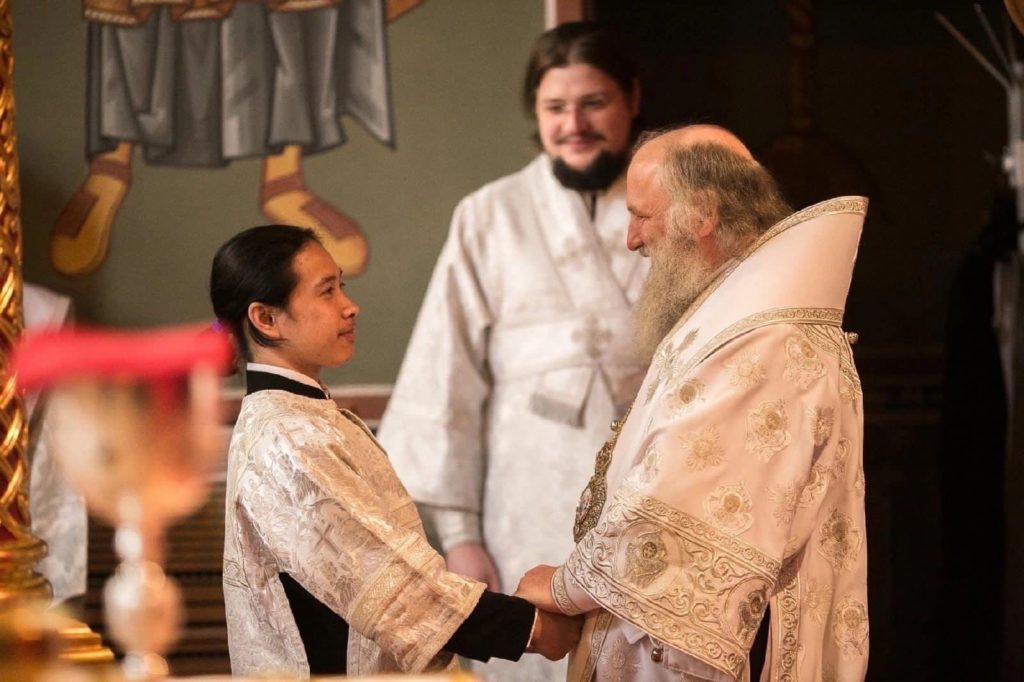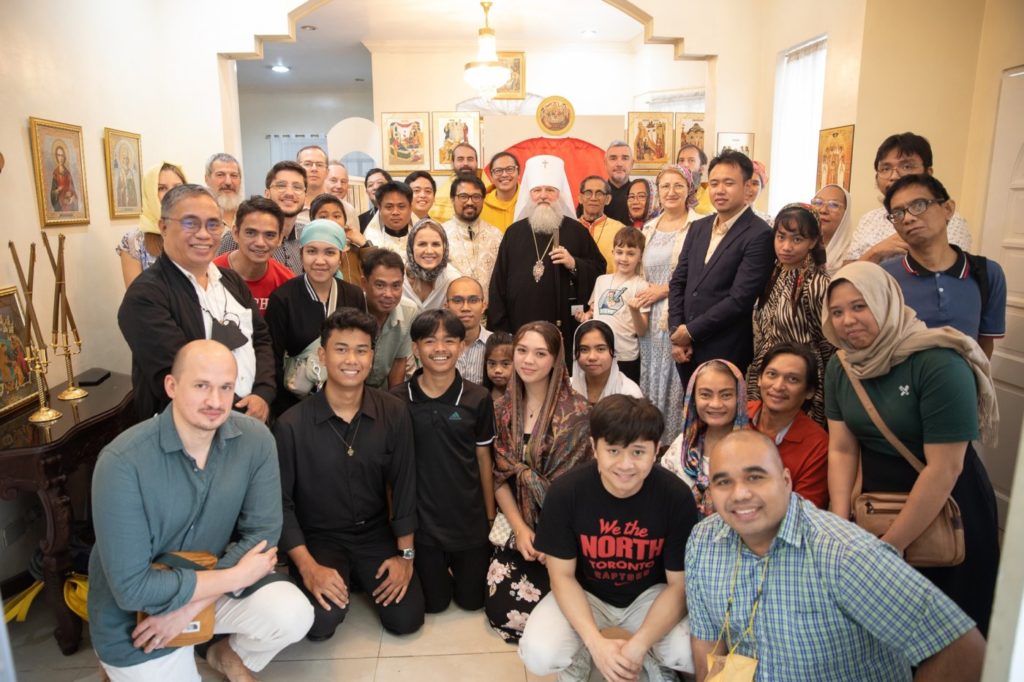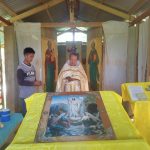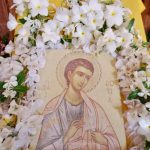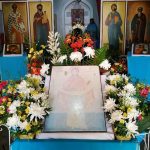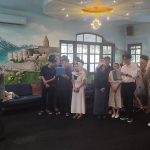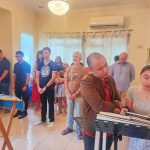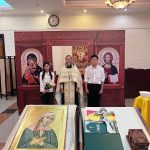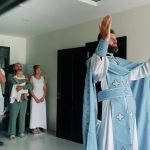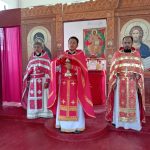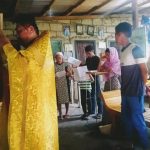Stefan, a Filipino student of the St. Petersburg Theological Seminary, gave an interview to our correspondent.
– Tell us, how did you get acquainted with Orthodoxy?
– We are from the Aglipay Church (Independent Filipino Church. – Auth.). One of our priests converted to Orthodoxy. We, as parishioners, followed him, being baptized with the whole family, converted to Orthodoxy. We have studied this religion for a long time, read about the Orthodox faith, felt in spirit that it is true. You know, it’s something like an inner feeling, it’s impossible to explain, you just feel that this path is yours.
– Where do you live? Which city is it – big or small?
– We came from a village, there are few people living there, and they are all religious, go to church. Now, by the way, a new, beautiful temple is being built in the place where I was born, it’s nice to realize this. Orthodoxy in the Philippines is not so long ago, while not a very large part of the population adheres to this religion, but every year there are more of us, I see it. But still the Roman Catholics prevail, as they were the first on this place.
– How did you decide to become a priest?
– I did not have such thoughts when a child, I was a believer, but I did not think that I would connect my life with God. My cousin is an Orthodox priest, it was he who first started talking about it. I thought about it, weighed the pros and cons, realized that this was my way, and agreed. I understand that this choice entails many difficulties, limitations, but for me it is the best profession. I can and will serve God.
– Tell us about your impressions of St. Petersburg? What impressed you the most?
– Well, first of all, like any foreigner, snow. I couldn’t imagine how it falls so much, how beautiful it can be, I saw how the city changes in winter – it’s magic! Probably, like any visitor, I tried to walk a lot, admire the architecture. The buildings of St. Petersburg are fascinating, sometimes you just can’t believe that it was made by man. These cathedrals – we don’t have anything like that. St. Isaac’s, St. Nicholas, the Church of the Resurrection of Christ on the Blood, it was a happiness to visit each of them.
– Have you been told the history of this temple?
– Of course, even though I didn’t understand Russian well then. I remember that “on Blood”, because Emperor Alexander II died there. The temple was built as a monument.
– How is the day organized in your seminary?
– Wake up at 7:00, we put ourselves in order, go to morning prayer and have breakfast. At 9:00 we go to study. Classes last on average until 14:00. We have lunch and do self-preparation, we learn something, we do tasks, we communicate. We have dinner at 20:00, after which we can spend time the way we want. Take a walk around the city, relax, meet friends. At 22:00 – evening prayer, and we can rest.
– How do you study at the seminary? Are there only Russians or more foreigners?
– We study together, with Russian and foreign students. The second, by the way, have increased over the past year. These are Africans, Serbs, Ukrainians, guys from India. You can imagine how interesting it is for people from different countries to meet here – in Russia. We talk most often, by the way, in Russian! Even with Filipino brothers, knowing the same language, we often speak Russian. Or it’s something in between Filipino, Russian and English.
– And why did they come to study in St. Petersburg? Guys from Africa, India, did they talk about their reasons?
– We haven’t had time to talk about this topic yet, they are still learning Russian. It is more difficult for Africans: they do not speak English, only French. And everyone has the same goal: to become priests, to help people and to serve God. We are all Christian brothers, regardless of the nation, culture, or country where we were born.
– I can’t help but ask, how do you like the famous video about how your countryman is “introduced” to the charms of the northern winter?
– I’ve seen this video, but I’m also familiar with the main characters! I wouldn’t want to be in his place. (Laughs.) I still have enough snow falling from the sky, I’m not ready to swim in it. What can I say, after watching, I began to look around more often. The main thing here is to be the first to take a snowball in hand, to equalize the chances.
– Hundreds of thousands of people saw on this video that priests can also joke, have fun and laugh. In your opinion, which is better: when a representative of the clergy maintains the image of an eternally serious person or when he shows that priests are also people?
– It depends only on the priest. Just like ordinary people, there are those who like to joke, there are those who are far from humor. We just need to remember that we are all human beings, with our own characteristics and characters. My opinion is this: if you are in a good mood, if you are on good terms with the interlocutor, why not make a joke, smile and cheer up both of you? Of course, we are not talking about services, not about behavior inside the altar. In order for people to come to the faith, to reach out to the church, we just have to remain human, be an example to others.
– How has the spiritual life in the Philippines changed after Metropolitan Paul became the ruling bishop in these territories?
– After Vladyka Pavel was appointed administrator of the Philippine-Vietnamese diocese, people seemed to become closer to the Church, many new priests appeared, new churches and churches in villages and large cities. In general, Orthodoxy is suitable for my country, I am pleased that the number of parishioners is growing, they go to services, pray, and learn this religion.
By the way, about the services: everyone is interested in the language in which they are held. If we are talking about large settlements, such as Davao, then priests read services in English, in Cebu and in Church Slavonic. And if it’s a small village, like the one where I come from, then only in my own language. But most often in the Philippines, of course, you can hear English, it is considered the second native language among the locals. All because the Philippines was once a colony.
– What is your life plan? Who do you want to become, how do you want to live in the Philippines?
– Now I’m trying to absorb all the knowledge that they give me. I’m trying to gain experience, to become a good priest. I want to return to my native land, get married, start a family and help people first of all. Moreover, I already have a girlfriend, I don’t know how fate brought us together. She hails from Tambov, the daughter of a priest. We met through the Internet and now, whenever possible, we try to come to each other, see each other, talk. So the plans are like everyone else’s: to live, to do good deeds, to grow as a person.
By the way, about the construction of churches in Ugra, as well as about the development of church building in earthquake-prone areas, such as the Philippine-Vietnamese diocese. Metropolitan Pavel of Khanty-Mansiysk and Surgut was awarded a high award by the Russian Academy of Engineering. The gold medal was awarded to him just for his great contribution to the construction of temples in Ugra and in the territory he manages. Temples in the Philippines are built or are being built in Kinabalan, Davao and other places.”During the ministry of Bishop Paul, 65 churches were built in the Khanty-Mansiysk diocese, 45 churches and chapels are currently under construction,” the diocese said.

